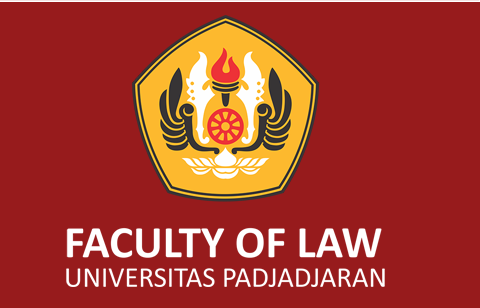Abstract
Artificial Intelligence influences democratic norms and principles. It affects the quality of democracy since it triggers hoaxes, irresponsible political campaign, and data privacy violations. The study discusses the legal framework and debate in the regulation of Artificial Intelligence in the European Union legal system. The study is a doctrinal legal study with conceptual and comparative approach. It aims to criticize the current doctrine of democracy. The analysis explored the law on election and political party in Indonesia to argue that the democratic concept is outdated. On the other hand, the European Union has prepared future legal framework to harmonize Artificial Intelligence and democracy. The result of the study indicates that the absence of law on Artificial Intelligence might be the fundamental reason of the setback of democracy in Indonesia. Therefore, the Indonesian legal system must regulate a prospective Artificial Intelligence regulation and a new democratic concept by determining the new principles of responsible Artificial Intelligence into drafts of laws on Artificial Intelligence, election, and political party. Finally, the new laws shall control programmers, politicians, governments, and voters who create and use Artificial Intelligence technology. In addition, these legal principles shall be the guideline to prevent the harms and to mitigate the risks of Artificial Intelligence technology as well as the effort to strengthen democracy.
Recommended Citation
Rahman, Rofi Aulia; Prabowo, Valentino Nathanael; David, Aimee Joy; and Hajdú, József
(2022)
"Constructing Responsible Artificial Intelligence Principles as Norms: Efforts to Strengthen Democratic Norms in Indonesia and European Union,"
Padjadjaran Jurnal Ilmu Hukum (Journal of Law): Vol. 9:
No.
2, Article 2.
DOI: https://doi.org/10.22304/pjih.v9n2.a5
Available at:
https://journal.unpad.ac.id/pjih/vol9/iss2/2
References
Books
Artis. Demokrasi dan Konstitusi di Indonesia. Pekanbaru: UIN Suska Riau, 2014.
Ubaedillah, A. and Abdul Rozak. Pendidikan Kewarganegaraan (Civil Education) Demokrasi, Hak Asasi Manusia, dan Masyarakat Madani. Jakarta: ICCE UIN Syarif Hidayatullah, 2000.
Ben-Israel, Isaac, et.al. Towards Regulation of AI Systems Global Perspectives on The Development of a Legal Framework on Artificial Intelligence (AI) Systems Based on The Council of Europe’s Standards on Human Rights, Democracy and The Rule of Law. Europe: Council of Europe Study, 2020.
G. Wilhelm, Anthony. Democracy in the Digital Age, Challenges to Political Life in Cyberspace. New York: Routledge, 2000.
Satriawan, Iwan and Khairil Azmin Mokhtar. Democratic Transition and Constitutional Justice: Post Reformasi: Constitutional Adjudication in Indonesia. Malaysia: International Islamic University Malaysia, 2020.
Bradshaw, Samantha and Philip N. Howard. Troops, Trolls, and Troublemakers: A Global Inventory of Organized Social Media Manipulation. Oxford: University of Oxford, 2017.
Asshiddiqie, Jimly. Konstitusi dan Konstitusionalisme Indonesia. Jakarta: Sinar Grafika, 2011.
Maria, Lisa and Nahema Marchal. Polarisation and The Use of Technology in Political Campaigns and Communication. Europe: European Union, 2019.
Budiardjo, Miriam. Dasar-dasar Ilmu Politik. Jakarta: Gramedia, 1986.
Vasu, Norman, et.al. Fake News: National Security in The Post-Truth Era. Singapore: Nanyang Technological University, 2018.
Scientific Foresight Unit (STOA). The Ethics of Artificial Intelligence: Issues and Initiatives. European Union: European Parliamentary Unit, 2020.
Ladiqi, Suyanto and Ismail Suardi Wekke. Demokrasi di Era Digital. Yogyakarta: Diandra Kreatif, 2018.
Other Documents
Aji, M. Rosseno. “YLBHI: Demokrasi Terancam Gara-Gara Buzzer.” Tempo, April 10, 2022. https://nasional.tempo.co/read/1256216/ylbhi-demokrasi-terancam-garagarabuzzer/full&view=ok.
Anzini, Martina. “The Artificial Intelligence Act Proposal and its Implications for Member States.” EIPA EU, April 30, 2022. https://www.eipa.eu/publications/briefing/the-artificial-intelligence-act-proposal-and-its-implications-for-member-states/.
Barredo-Ibáñez, Daniel, et.al. “Artificial Intelligence, Communication, and Democracy in Latin America: A Review of The Cases of Colombia, Ecuador and Mexico.” Profesional de la Información 30, no. 6 (2021): 5-6. https://doi.org/10.3145/epi.2021.nov.16.
Benjamin, Misha, et.al. “What the Draft European Union AI Regulations Mean for Business.” McKinsey, April 29, 2022. https://www.mckinsey.com/business-functions/quantumblack/our-insights/what-the-draft-european-union-ai-regulations-mean-for-business.
Chang, Alvin. “The Facebook and Cambridge Analytica Scandal, Explained with a Simple Diagram.” Vox.com, April 15, 2022. https://www.vox.com/policy-and-politics/2018/3/23/17151916/facebook-cambridge-analytica-trump-diagram.
Charles Pomerol, Jean. “Artificial Intelligence and Human Decision Making.” European Journal of Operational Research 99, (1997): 3-25. http://dx.doi.org/10.1016/S0377-2217(96)00378-5.
Chauhan, Prashant and Gagandeep Kaur. "Gender Bias and Artificial Intelligence: A Challenge within the Periphery of Human Rights." Hassanuddin Law Review 8, no. 1 (2022): 46-59. http://dx.doi.org/10.20956/halrev.v8i1.3569.
Darmawan, Hari. “Kemenkominfo Mencatat Jumlah Pengguna Internet di Indonesia Mencapai 202,35 Juta Orang, Tribun News.” Tribun News, April 15, 2022. https://www.tribunnews.com/techno/2022/01/20/kemenkominfo-mencatat-jumlah-pengguna-internet-di-indonesia-mencapai-20235-juta-orang.
Djeffal, Christian. “AI, Democracy and the Law, The Democratization of Artificial Intelligence: Net Politics in the Era of Learning Algorithms.” Bielefeld: transcript Verlag, (2019): 255-284. https://doi.org/10.1515/9783839447192-016.
Doyle, Eoghan and Hugo Grattirola. “EU Artificial Intelligence Regulation.” Philip Lee, June 1, 2022. https://www.philiplee.ie/eu-artificial-intelligence-regulation/.
E. Cohen, Julie. “Law for the Platform Economy.” University of California Davis Law Review 51, (2017): 133-2014. https://scholarship.law.georgetown.edu/cgi/viewcontent.cgi?article=3033&context=facpub.
Erbaysal Filibeli, Tirşe. “Big Data, Artificial Intelligence and Machine Learning Algorithms: A Descriptive Analysis of Digital Threats in the Post-Truth Era.” İleti-ş-im 31, (2019): 102-103. https://doi.org/10.16878/gsuilet.626260.
European Commission. “A European Approach to Artificial Intelligence.” European Commission, June 1, 2022. https://digital-strategy.ec.europa.eu/en/policies/european-approach-artificial-intelligence.
Fatmala, Devi Rahma, et.al. “Penggunaan Akun Bot Media Sosial Untuk Mempengaruhi Opini Publik: Sebuah Tinjauan Hukum di Indonesia.” Ajudikasi: Jurnal Ilmu Hukum 4, no. 1 (2020): 55–68. https://doi.org/10.30656/ajudikasi.v4i1.2210.
Gerald Daly, Tom and Brian Christopher Jones. “Parties Versus Democracy: Addressing Today’s Political Party Threats to Democratic Rule.” International Journal of Constitutional Law 18, no. 2 (2020): 509–538. https://doi.org/10.1093/icon/moaa025.
Hassani, Hossein, et.al. “Artificial Intelligence (AI) or Intelligence Augmentation (IA): What is The Future?.” AI 1, no. 2 (2020): 143–155. http://dx.doi.org/10.3390/ai1020008.
High Level Expert Group on AI (AI HLEG). “Ethics guidelines for Trustworthy AI.” European Commission, June 3, 2022. https://digital-strategy.ec.europa.eu/en/library/ethics-guidelines-trustworthy-ai.
Kop, Muritz. “EU Artificial Intelligence Act: The European Approach to AI, Transatlantic Antitrust and IPR Developments.” Stanford Law School, June 4, 2022. https://law.stanford.edu/publications/eu-artificial-intelligence-act-the-european-approach-to-ai/.
L. Boldyreva, Elena, et.al. “Cambridge Analytica: Ethics and Online Manipulation with Decision-Making Process.” The European Proceedings of Social and Behavioural Sciences (2018).
La Batu, Safrin. “Govt Deploys Artificial Intelligence to Combat Internet Hoaxes.” The Jakarta Post, April 18, 2022. https://www.thejakartapost.com/news/2018/01/31/govt-deploys-artificial-intelligence-to-combat-internet-hoaxes.html.
Leslie, David, et.al. “Artificial Intelligence, Human Rights, Democracy, and The Rule of Law: A Primer.” The Alan Turing Institute (2021).
Manheim, Karl and Lyric Kaplan. “Artificial Intelligence: Risks to Privacy and Democracy.” Yale Journal of Law and Technology 21, (2019): 106-188. https://yjolt.org/sites/default/files/21_yale_j.l._tech._106_0.pdf.
Mikalef, Patrick, et.al. “Thinking Responsibly About Responsible AI and ‘The Dark Side’ of AI.” European Journal of Information Systems 31, no. 3 (2022): 257-268. https://doi.org/10.1080/0960085X.2022.2026621.
Muntoha. “Demokrasi Dan Negara Hukum.” Jurnal Hukum Ius Quia Iustum 16, no. 3 (2009): 379–395. https://doi.org/10.20885/iustum.vol16.iss3.art4.
N. Howard, Philip. “Algorithms, Bots, and Political Communication in The US 2016 Election: The Challenge of Automated Political Communication for Law on General Elections and Administration.” Journal of Information Technology & Politics 15, no. 2 (2018): 81-93. https://doi.org/10.1080/19331681.2018.1448735.
P. Strotzky, Irwin. “Establishing Deliberative Democracy: Moving from Misery to Poverty with Dignity.” University of Arkansas Little Rock Law Review 21, no. 1 (1998): 79-105. https://repository.law.miami.edu/cgi/viewcontent.cgi?article=1561&context=fac_articles.
Persily, Nathaniel and Charles Stewart III. “The Miracle and Tragedy of the 2020 U.S. Election.” Journal of Democracy 32, no. 2 (2021): 159-78. https://journalofdemocracy.org/articles/the-miracle-and-tragedy-of-the-2020-u-s-election/.
Rahman, Rofi Aulia, et.al. “Calon Tunggal Pilkada: Krisis Kepemimpinan dan Ancaman Bagi Demokrasi.” Jurnal Konstitusi 19, no. 1 (2022): 47-72. https://doi.org/10.31078/jk1913.
______________________. “Fake News and Internet Shutdowns: Symptoms of Failure to Uphold Democracy.” Constitutional Review 8, no. 1 (2022): 151-183. https://doi.org/10.31078/consrev816.
Schippers, Birgit. “Artificial Intelligence and Democratic Politics.” Political Insight 11, no. 1 (2020): 32-35. https://doi.org/10.1177%2F2041905820911746.
Serbanescu, Caroline. “Why Does Artificial Intelligence Challenge Democracy? A Critical Analysis of the Nature of the Challenges Posed by AI-Enabled Manipulation.” Retskraft - Copenhagen Journal of Legal Studies 5, no. 1 (2021): 106-128. http://dx.doi.org/10.1145/3306618.3314286%3E.
Shao, Chengcheng, et.al. “The Spread of Low-Credibility Content by Social Bots.” Nature Communications 9, no. 1 (2018): 1.
Stefanoski, Darko. “European Draft Regulation on Artificial Intelligence: Key Questions Answered.” EY, April 8, 2022. https://www.ey.com/en_ch/law/european-draft-regulation-on-artificial-intelligence-key-questions-answered.
Tanna, Minesh. “EU Draft AI Regulation: A Practical Guide.” Simmons Simmons, June 1, 2022. https://www.simmonssimmons.com/en/publications/cko477kzk2jyr0918n01q2l8u/quick-guide-to-the-eu-draft-ai-regulation.
Vosoughi, Soroush, et.al. “The Spread of True and False News Online.” Science 359, no. 6380, (2018): 1146 – 1151. https://doi.org/10.1126/science.aap9559.
Walker, Neil. “Constitutionalism and the Incompleteness of Democracy: An Iterative Relationship.” Netherlands Journal of Legal Philosophy 39, no. 3 (2010): 206-233. https://www.elevenjournals.com/tijdschrift/rechtsfilosofieentheorie/2010/3/RenR_1875-2306_2010_039_003_002.
DOI
https://doi.org/10.22304/pjih.v9n2.a5










